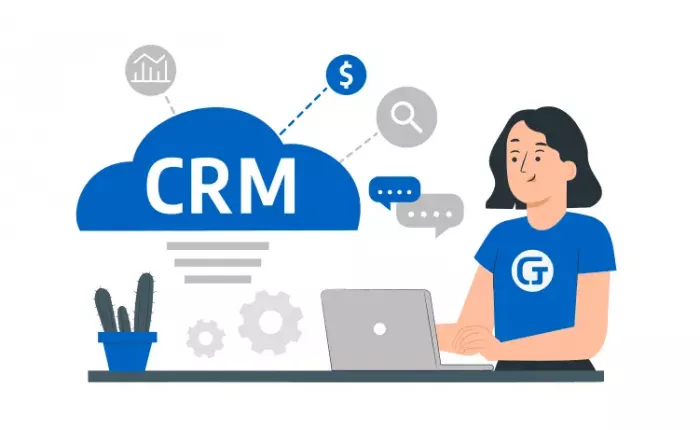Financial advisors experience a significant challenge while expanding their practice when retaining dependable and high-quality interactions with clients becomes increasingly difficult. Financial clients expect to receive individualized care while maintaining quick communication and full comprehension of their investment objectives despite an advisor's other client caseload. companies need CRM systems as essential tools for their operations. The integration of CRM software helps businesses manage their client information effectively and uses this capability to scale their client service operations with maintained service quality standards.
By leveraging the right CRM for financial advisors, firms can develop workflows and systems that support growth. The implementation of technology-based client experience platforms minimizes the chances of failed follow-ups and memorizes client preferences and delivers uniform communication. Enterprise-wide relationship management and efficient communication flows through CRM systems which enable personal advisor interaction across large client portfolios.
Creating a System for Consistency

Constructing experiential scalability begins with the establishment of systematic procedures. CRM software platforms set up properly allow advisors to automate their standard professional interactions which include new client enrollments, meetings scheduling and follow-up checkpoint tasks. The established repeatable processes make sure every client receives equivalent care because they maintain the same degree of attention irrespective of the number of clients an advisor serves.
The development of trust depends heavily on maintaining consistency. Loyal clients emerge from advisors who fulfill their commitments by remaining accessible to their clients throughout their client journey. A CRM system can enable this goal through automated email templates with scheduled appointment scheduling features and milestone alert capabilities. The establishment of uniform client experiences produces pleased customers who tend to retain their services thus fueling growth.
Using Automation for Scale
The foundation of growing client numbers without reducing service standards depends on automation processes. The automated capabilities of CRM systems enable them to manage standard operations including the delivery of birthday greetings and the generation of review timelines as well as post-meeting follow-ups. Automated delivery of small gestures enables advisors to demonstrate care through procedure-based systems which consume minimal additional time.
The application of automation programs must avoid mechanical delivery of services. Any CRM system dedicated to financial advisors needs user-defined fields along with note capabilities to keep communications personal while process automation remains in effect. A combination of personalized references in follow-up emails and goal-specific financial update customization makes communications appear more valuable to customers. Automation technologies help companies grow their customer base through scalability however human touchpoints are needed to maintain client loyalty.
Organizing and Accessing Client Data
The main benefit of CRM software becomes possible through its ability to consolidate client information. Users of CRM software can avoid laborious data retrieval methods because all client information resides in one central system. The appropriate CRM setup enables users to access single repository storage containing both communication records and financial goal achievements.
Data that is neatly arranged allows users to detect market trends and valuable prospects and execute preventive measures with greater ease. The identification of portfolio review needs or new service benefits for clients becomes significantly easier to spot because of implementation framework support. The combination of strategic action with this approach creates both better client interactions and business expansion.
Tracking and Measuring Client Engagement
The process of successful growth requires advisors to identify their effective practices while detecting possible weaknesses in client experiences. CRM systems equipping users with reporting tools that record client engagement via email open rates combined with scheduled meetings and service usage records. By gaining information from these client engagement metrics advisors can adapt their business strategies to maintain client satisfaction.
Advisors who make decisions based on data can optimize their service delivery systems. Segmental client groups that seldom open their newsletters should trigger an evaluation for switching to different communication channels. Through CRM software firms can monitor engagement to implement changes that deliver enhanced client experiences for all customers in addition to single-case improvements.
Maintaining a Personal Touch as You Grow
The expansion of a business frequently leads to apprehension about preserving personal connection in client relationships. The appropriate technological solutions enable businesses to grow their operations without sacrificing personal or genuine interaction quality with clients. The integration of CRM software improves business manager abilities to recall client preferences while tracking their life events and celebrating their unique milestones which strengthens the advisor-client bond.
The expansion of client lists doesn't have to result in any decrease of personal touch in client interactions. The right implementation of systems within your CRM allows you to uphold superior service even though your team remains efficient. Success in financial advisory depends on achieving equal measures between serving many clients and maintaining personal relationships with each one.
Post Comment
Be the first to post comment!
Related Articles

11+ Best Free AI Tools to Use in 2025
Apr 16, 2025


